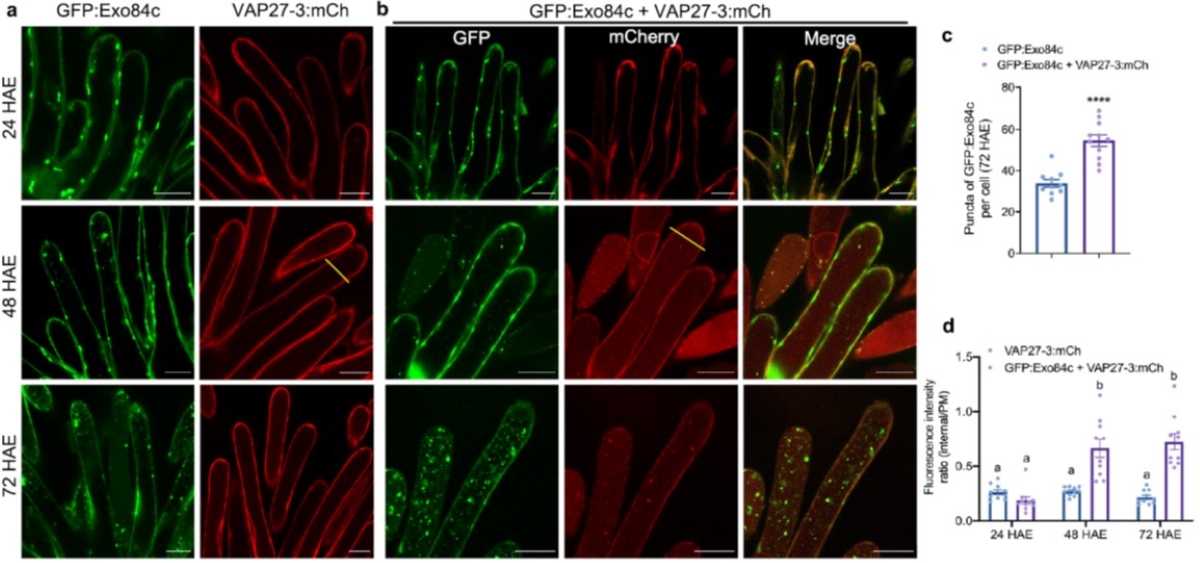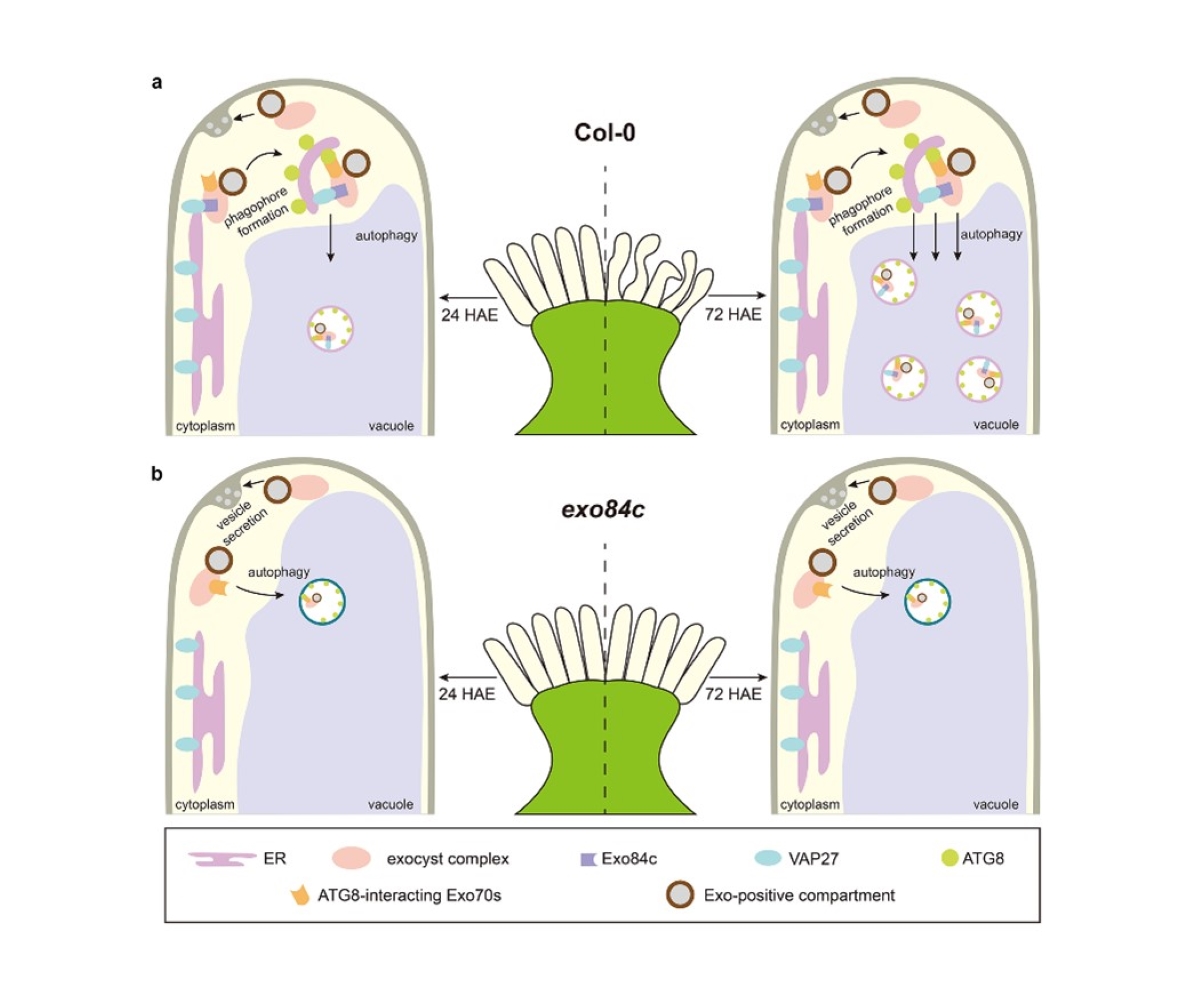南湖新闻网讯(通讯员 张彤)植物花器官寿命决定了有效授粉期,并最终决定了种子数量,柱头组织负责花粉的识别和接受,从而影响花粉管萌发及双受精过程的完成。近日,华中农业大学果蔬园艺作物种质创新与利用全国重点实验室、湖北洪山实验室王鹏蔚教授课题组在植物花器官衰老机制方面取得突破性进展,在Nature Communications上发表题为 “Exo84c interacts with VAP27 to regulate exocytotic compartment degradation and stigma senescence” 的研究成果。
植物胞吐复合体成员参与蛋白分泌及自噬降解过程,具有显著的功能分化特征,对植物发育和生存至关重要。自噬过程的分子机制研究已相对完善,但自噬在植物生殖发育中的功能尚不清楚。本研究解析了开花植物特有的胞吐复合体成员Exo84c,通过与内质网定位蛋白VAP27相互作用,参与植物柱头衰老过程。植物Exo84蛋白有三种亚型,分别为Exo84a, Exo84b和Exo84c,而VAP27特异性与Exo84c互作。拟南芥exo84c突变体柱头细胞衰老延缓,而vap27-1/3双突变体中柱头提前衰老。对衰老过程中柱头乳突细胞进行活细胞成像观察,发现乳突细胞衰老过程中Exo84c与VAP27通过自噬途径进入液泡内降解(图1)的同时,Exo84c与VAP27的互作还介导胞吐复合体及其成员通过选择性自噬途径降解(图2),继而影响柱头细胞的活性,以及有效授粉期。本研究首次从细胞生物学角度揭示了胞吐复合体成员Exo84c参与柱头衰老的调控机制,解析了内质网参与介导胞吐复合体选择性自噬降解的新途径。不仅揭示了自噬途径在花器官衰老过程中的作用,也为通过延长有效授粉窗口保证产量提供了理论依据。

图1 VAP27和Exo84c在衰老的柱头乳突细胞中通过自噬途径降解

图2 VAP27和Exo84c调控柱头衰老的模式图
王鹏蔚教授实验室长期致力于研究植物内质网-细胞器互作的分子机制与生物学功能,重点关注细胞器互作网络、细胞骨架在选择性自噬、植物生殖发育与果实发育等方面的作用。 本项研究得到了国家自然科学基金面上项目、细胞器互作重大研究计划、华中农业大学青年团队培育项目、中国博士后科学基金等项目的支持。王鹏蔚教授为本文的通讯作者,华中农业大学园艺林学学院博士后张彤博士为本文的第一作者,王鹏蔚教授课题组成员博士研究生李怡凡、李柽钖,博士后臧婧泽、高二林等参与了该项工作。屈晓璐研究员、Patrick J. Hussey教授参与指导相关研究。
【原文摘要】
In plants, exocyst subunit isoforms exhibit significant functional diversity in that they are involved in either protein secretion or autophagy, both of which are essential for plant development and survival. Although the molecular basis of autophagy is widely reported, its contribution to plant reproduction is not very clear. Here, we have identified Exo84c, a higher plant-specific Exo84 isoform, as having a unique function in modulating exocytotic compartment degradation during stigmatic tissue senescence. This process is achieved through its interaction with the ER localised VAP27 proteins, which regulate the turnover of Exo84c through the autophagy pathway. VAP27 recruits Exo84c onto the ER membrane as well as numerous ER-derived autophagosomes that are labelled with ATG8. These Exo84c/exocyst and VAP27 positive structures are accumulated in the vacuole for degradation, and this process is partially perturbed in theexo84cknock-out mutants. Interestingly, theexo84cmutant showed a prolonged effective pollination period with higher seed sets, possibly because of the delayed stigmatic senescence when Exo84c regulated autophagy is blocked. In conclusion, our studies reveal a link between the exocyst complex and the ER network in regulating the degradation of exocytosis vesicles, a process that is essential for normal papilla cell senescence and flower receptivity.
原文链接:https://www.nature.com/articles/s41467-023-40729-5
审核人 王鹏蔚
